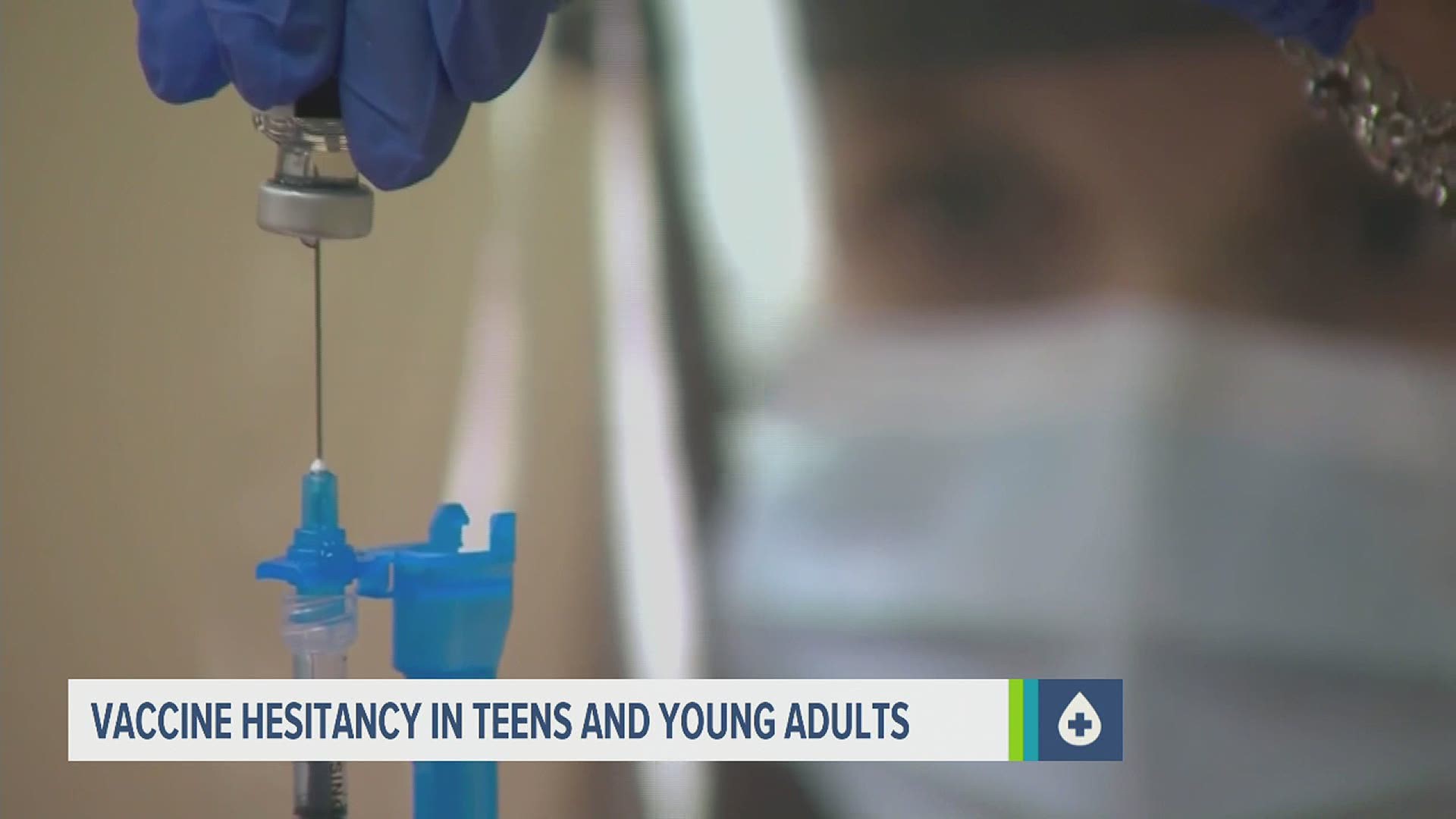YORK, Pa. — Leah Schreffler is one of many teenagers who has received her COVID-19 vaccine.
"I didn't want to take the chance of getting the older relatives around me sick and I wanted to be able to still see them and feel comfortable," Schreffler said.
Many of her peers have not.
"I do have some friends that aren't and don't plan to," she said.
A CDC report found that only 38% of those between the ages of 18 and 29 had gotten at least one dose of the COVID-19 vaccine, compared to 80% in those 65 and older.
But health experts say comparing the two groups is not fair.
"They really didn't start fully vaccinating adults 18 and above until like March or April, when those guidelines came out, so you really can't compare," Dr. Stephen D. Henderson from Penn State Health Hershey Medical Center said.
However, the report states that the rate in which young adults are getting vaccinated is much slower than other age groups.
So, if there's vaccine hesitancy among this group, what could be causing it?
"Since the virus hasn't affected them as aggressively as adults over 65, they don't feel a need to get vaccinated and that's part of it," Dr. Henderson said.
Health experts say that in order to be able to reach that age group, it's crucial that they go to places they spent time in the most like colleges and universities.
Schreffler said that for her, getting the vaccine not only meant helping stop the spread, but also being at less risk of catching COVID-19 again.
"As somebody that had COVID-19, the vaccine is not even close in comparison to how you feel when you COVID-19," she said. "I never want to feel that sick ever again. I would take the risk of being even a little sick getting the vaccine to getting COVID-19 again."

